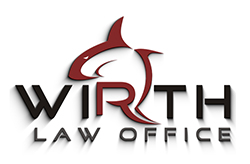 A Guide for Oklahoma City Residents on Taxes and Trusts
A Guide for Oklahoma City Residents on Taxes and Trusts
Understanding the complex world of estate planning can be daunting, especially when adding the tax implications of various trust structures. For Oklahoma City residents looking to protect their assets and minimize tax burdens for their heirs, understanding these nuances is crucial. This comprehensive guide explores the tax considerations associated with different trust types.
The Basics of Trusts and Their Importance
A trust is a legal arrangement where one party (the trustee) holds assets on behalf of another party (the beneficiary). Trusts serve multiple purposes, from asset protection to tax minimization. In Oklahoma City, trusts have become an increasingly popular estate planning tool due to their flexibility and potential tax benefits. However, the intricacies of trust law and tax regulations make professional guidance essential.
Revocable vs. Irrevocable Trusts: Understanding the Differences
The two primary categories of trusts are revocable and irrevocable, each with distinct tax implications. An Oklahoma City trust attorney can help determine which type best suits a client’s needs. Revocable trusts, also known as living trusts, offer flexibility as they can be altered or dissolved during the grantor’s lifetime. From a tax perspective, these trusts are considered “grantor trusts,” meaning the income is taxed to the grantor at their individual tax rate. While revocable trusts don’t provide immediate tax benefits, they offer other advantages such as probate avoidance and privacy. Irrevocable trusts, on the other hand, cannot be easily modified once established. These trusts can offer significant tax benefits, as the assets are removed from the grantor’s estate, potentially reducing estate tax liability. Income generated by the trust is typically taxed at the trust level, which may result in lower overall taxes depending on the circumstances.
Need help navigating the complex world of trusts? Contact an experienced Oklahoma City trust attorney at (405) 888-5400 for personalized guidance.
Specialized Trusts and Their Tax Implications
Beyond the basic revocable and irrevocable structures, there are several specialized trusts that can offer unique tax advantages:
- Charitable Remainder Trusts (CRTs): These trusts allow grantors to donate assets to charity while retaining an income stream. They offer potential income tax deductions and can help reduce capital gains taxes.
- Qualified Personal Residence Trusts (QPRTs): By transferring a primary residence into a QPRT, grantors can potentially reduce gift and estate taxes.
- Grantor Retained Annuity Trusts (GRATs): These trusts can help transfer wealth to beneficiaries with minimal gift tax consequences, especially useful for assets expected to appreciate significantly.
- Special Needs Trusts: While primarily designed to provide for individuals with disabilities without jeopardizing government benefits, these trusts can also offer tax planning opportunities.
The Role of an Oklahoma City Trust Attorney in Tax Planning
Creating and managing trusts with optimal tax outcomes requires specialized knowledge of both trust law and tax regulations. An experienced Oklahoma City trust attorney can:
- Analyze a client’s unique financial situation and goals
- Recommend the most appropriate trust structure
- Ensure trusts are properly drafted and executed according to Oklahoma law
- Provide ongoing advice on trust administration and tax reporting
Oklahoma-Specific Considerations
Oklahoma has its own set of laws governing trusts, including the Oklahoma Trust Act. Okla. Stat. tit. 60 § 175.1 et seq. This act provides the legal framework for trust creation and administration in the state. Additionally, Oklahoma does not impose a state estate tax, which can simplify planning compared to states with their own estate tax regimes.
Maximizing Tax Benefits Through Strategic Trust Planning
Effective trust planning can lead to significant tax savings. For example, utilizing an irrevocable life insurance trust (ILIT) can remove life insurance proceeds from a taxable estate, potentially saving hundreds of thousands in estate taxes for high-net-worth individuals. Similarly, a well-structured charitable remainder trust can provide income tax deductions in the year of contribution while also reducing the taxable estate.
The Importance of Regular Review and Updates
Tax laws and personal circumstances change over time. Regular reviews with an Oklahoma City trust attorney ensure that trust structures remain optimized for current tax laws and family situations. This proactive approach can prevent costly oversights and maximize tax benefits over the long term.
Take the Next Step in Protecting Your Legacy
The complexities of trust and tax law require personalized professional advice. An experienced Oklahoma City trust attorney can navigate these intricacies, ensuring that your estate plan aligns with your goals while minimizing tax burdens for your heirs. Contact Wirth Law Office – Oklahoma City at (405) 888-5400 to schedule a consultation with a skilled Oklahoma trust lawyer.








